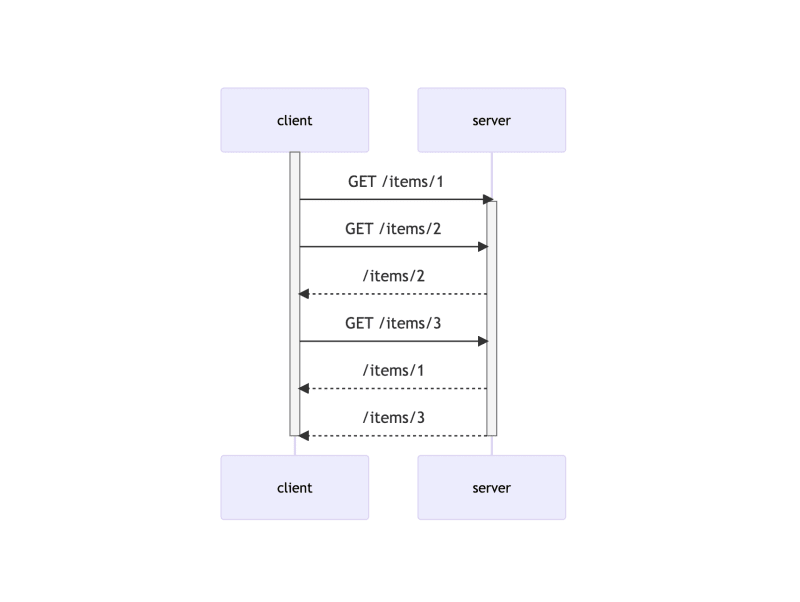Disclaimer
Laska is under active development and is not supposed to be used in production. API may change dramatically in future versions.
Intro
It's not a secret that Dart's popularity comes from the Flutter framework and its acceptance by the community. I love Flutter as well, but what I miss is server-side. How cool it could be to be a full-stack developer by using only Dart language?
There was a time, I want to start a new project and have to choose what technologies to use for the frontend and backend parts as well. Research gets me to Aqueduct and Shelf, both of them weren't looking actively developing and supported and that leads me to the idea to make my own small micro-framework like Echo for Golang or Bottle for Python. And it was easy to decide: I've had time and motivation :)
And before we get started, I'd like to answer some questions that will definitely come up: why do we need one more framework, and what's the problem your framework resolves? The first one is easy: ask JavaScript developers! But OK, the real answer is competition: the more frameworks we have, the more we learn from each other and, eventually, we build better apps. The second answer: it was designed and built for micro-services and small applications. Sure, there is a way to extend it with middleware and extensions that come later, but as I said I treat it as a Dart alternative to Bottle or Echo. And when I say built I mean will be built :)
Architecture
Laska - that's how the project is named - is a micro-framework, it's not aimed to be a full-featured app like Django. Therefore the architecture is quite simple: every request is processed by the same process while performance is based on leveraging the async nature of Dart.
Let's briefly review how it works.
As we can see on the diagram, asynchronous server processing works like a charm :)
I did experiment with Isolates and multiprocessing, but finally, I decided it would require the developers to work with additional limitations. It is not the way I want to use any kind of software, so why does anyone should do it? Programming should be easy and fun therefore there is no kind of parallelism in Laska.
Let's build something
There is a trivial way to present programming languages and frameworks called 'Hello world'. Let's be trivial!
import 'package:laska/laska.dart';
void main() async {
final laska = Laska();
laska.GET('/hello/:name',
(context) async => await context.Text("Hello ${context.param('name')}!"));
await run(laska);
}
It's easy to understand what's going on here:
- initialize a Laska object
- add a handler for GET requests at the route '/hello/:name', where
nameis a placeholder for context parameters - code a handler that returns a string with a parameter given in the path
- and run the server
That's it, an asynchronous server is up and running on http://localhost:3789.
More realistic example
Surely, 'Hello world' is not a kind of real-world application someone will deploy to production. The more realistic would be to build a server that logs user requests to the stdout and has routes that require authorization.
import 'package:laska/laska.dart';
// Custom middleware that checks user access.
class Acl implements Middleware {
final allowedRoles;
Acl(this.allowedRoles);
@override
Future<Function> execute(Function next, Context context) async {
return (Context c) {
// In this case it's simple check:
// Does the request contains `role` header with `admin` value.
final role = context.request.headers.value('role');
// If the header's `role` is not in `allowedRoles`, reject the request.
if (!allowedRoles.contains(role)) {
context.Text('Role $role is not allowed.');
return null;
}
print('Role $role is allowed.');
// Don't forget to call the handler.
return next(c);
};
}
}
// Custom middleware that prints request path and given prefix.
class Logger implements Middleware {
String prefix;
Logger(this.prefix);
@override
Future<Function> execute(Function next, Context context) async {
return (Context c) {
print('$prefix: Path: ${context.path}');
// Don't forget to call the handler.
return next(c);
};
}
}
void main() async {
final laska = Laska();
final acl_middleware = Acl(['admin']);
// Add global middleware
laska.Use(Logger('global'));
// Create handler with per-route middlewares: logger and acl
laska.GET('/secret', secretHandler,
middlewares: {Logger('route'), acl_middleware});
// Add route handler, only global middleware will apply
laska.GET('/users', getUsers);
// Add route with acl middleware, but only for the POST method.
laska.POST('/users', getUsers, middlewares: {acl_middleware});
await run(laska);
}
void secretHandler(Context context) async {
await context.Text('You have access to secret path!');
}
void getUsers(Context context) async {
await context.JSON([
{'id': 1, 'name': 'Make something useful', 'status': 0},
{'id': 2, 'name': 'Make new website', 'status': 1},
]);
}
I hope this code is self-explanatory but you can ask me any questions in comments :)
Roadmap
🅿️ - P is for planned.
- ✅ Dynamic routing with placeholders
- ✅ Middlewares
- ✅ JSON handling
- ✅ Form handling
- ✅ Null-Safety
- 🅿️ Logging
- 🅿️ Serve static files
- 🅿️ Template rendering?
- 🅿️ Extensions
- 🅿️ Health checks
- ❓ What's more?
The end
I'd love to see more server-side Dart projects and hope you do too. If you think so it would be very encouraging if you star the project on GitHub and like it on Dev.to.








Latest comments (0)